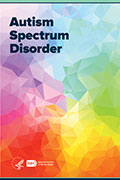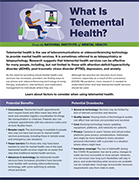Men and Mental Health
Why is men’s mental health important?
Mental disorders affect men and women. The prevalence of several mental disorders is lower in men than in women. However, other disorders are diagnosed at comparable rates for men and women or at higher rates for men, like attention-deficit/hyperactivity disorder (ADHD). Men are also more likely to die by suicide than women, according to the Centers for Disease Control and Prevention .
Certain symptoms may also be more common in men than women, and the course of illness can be affected by a person’s sex. Researchers are only now beginning to tease apart the various biological and psychosocial factors that may impact mental health.
Men are less likely to have received mental health treatment than women in the past year. Recognizing the signs that you or someone you love may have a mental disorder is the first step toward getting treatment. The earlier that treatment begins, the more effective it can be.
Mental health includes emotional, psychological, and social well-being. Learn more about taking care of your mental health.
Unless otherwise specified, the information on our website and in our publications is in the public domain and may be reused or copied without permission. However, you may not reuse or copy images. Please cite the National Institute of Mental Health as the source. Read our copyright policy to learn more about our guidelines for reusing NIMH content.






